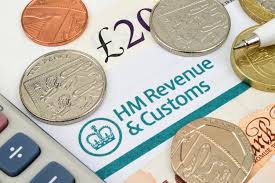A SIMPLE GUIDE TO THE BUDGET 2018
This is a basic guide, prepared by ACCA’s Technical Advisory team, for members and their
colleagues or clients. It is an introduction only and should not be used as a definitive guide, since
individual circumstances may vary. Specific advice should be obtained, where necessary.
The message from the Chancellor was that ‘this is a budget that shows the British people that the
hard work is paying off.’
Dividend allowance
The tax-free dividend allowance is unchanged at £2,000.
Stamp Duty Land Tax: relief for first time buyers
The chancellor announced relief up to the value of £500,000 back-dating from 22 November 2017,
so that those eligible who have not previously claimed first-time buyers’ relief will be able to amend
their return to claim a refund. This measure does not apply in Scotland or Wales
Corporation tax
The corporation tax rate will remain at 19%.
Annual investment allowance
Companies will be able to claim £1m as AIA for expenditure incurred from 1 January 2019 to 31
December 2020.
Structure and Building allowance
A relief of 2% will be available for expenditure on non-residential buildings, for which construction
contracts are entered into after 29 October 2018. Qualifying costs relate to construction,
improvement, conversion, including demolition costs and land alterations costs.
CGT letting relief and final period exemption
From April 2020 the government will reform lettings relief so that it only applies in circumstances
where the owner of the property is in shared occupancy with the tenant. The final period exemption
will also be reduced from 18 months to 9 months.
Making tax digital
There were no announcements on MTD. HMRC is aiming to introduce MTD for VAT in April 2019.
Making tax digital
There were no announcements on MTD. HMRC is aiming to introduce MTD for VAT in April 2019. VAT registration threshold remains £85,000 for 2018/19 and 2019/20.
Phoenix and insolvent companies
From 6 April 2020, the government will change the rules when a business enters insolvency HMRC
will be a preferential creditor. It has also announced that directors and other persons involved in
tax avoidance, evasion or phoenixism will be jointly and severally liable for company tax liabilities.
Business rates
The threshold for Small Business Rate Relief (SBRR) has been raised to include properties with a
rateable value of up to £51,000. The Treasury has announced that the bills of those below this
threshold will be reduced by a third, starting from April 2019 for a period of two years.
Apprenticeships
SMEs will now only pay 5% towards the cost of an apprentice’s training costs, down from the
previous 10% co-investment rate. This change is expected to come into effect from April 2019
Taxation of trusts
The taxation of trusts will be subject to a consultation and review
R&D
From 1 April 2020, the amount of payable R&D tax credit that a qualifying loss-making company
can receive in any tax year will be restricted to three times the company’s total PAYE and NICs
liability for that year.
IHT
The Nil-rate band remains at £325,000. The residence nil-rate band for deaths in the following tax
years will be:
• £100,000 in 2017 to 2018 £125,000 in 2018 to 2019
• £150,000 in 2019 to 2020 £175,000 in 2020 to 2021
Interest relief for landlords
Landlords will be able to obtain relief as follows:
Finance cost allowed in full Finance cost allowed at basic rate
Year to 5 April 2018 75% 25%
Year to 5 April 2019 50% 50%
Year to 5 April 2020 25% 75%
Year to 5 April 2021 0% 100%
IR35
The chancellor announced the extension of IR35 to the public sector. It has been recognised with
issues with CEST and recent cases that changes require further thought with a resulting
implementation date of April 2020. The reform will apply to large and medium sized businesses.
Employment allowance reform
From April 2020, this will be limited to employers with an employer NICs bill below £100,000 in the previous tax year.
Entrepreneurs’ Relief
Legislation will be introduced in Finance Bill 2018-19 for disposal made on or after 6 April 2019, to increases this minimum period throughout which certain conditions must be met to be eligible for Entrepreneurs Relief from one year to two years
ACCA LEGAL NOTICE This is a basic guide prepared by the ACCA UK’s Technical Advisory Service for members and their clients. It should not be used as a definitive guide, since individual circumstances may vary. Specific advice should be obtained, where necessary.








